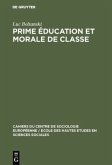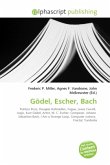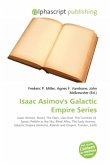E-Prime (short for English-Prime) is a modified form of the English language which lacks the concepts and forms of the verb to be: "be", "is", "am", "are", "was", "were", "been" and "being" (and their equivalent contractions "'m", "'s", and "'re"). Statements in E-Prime thus seldom contain the passive voice, which in turn may impel writers or speakers to envisage things differently than they might otherwise (compare the Sapir-Whorf hypothesis). By eliminating most uses of the passive voice, E-Prime encourages writers and speakers to make explicit the agent of a statement, possibly making the written text easier to read and understand. Some people use E-Prime as a mental discipline to filter speech and translate the speech of others. For example, the sentence "the movie was good", translated into E-Prime, could become "I liked the movie". The translation communicates subjective experience rather than judgment. In this example, using E-Prime makes it harder for the writer or readerto confuse a statement of opinion with a statement of fact.
Bitte wählen Sie Ihr Anliegen aus.
Rechnungen
Retourenschein anfordern
Bestellstatus
Storno








